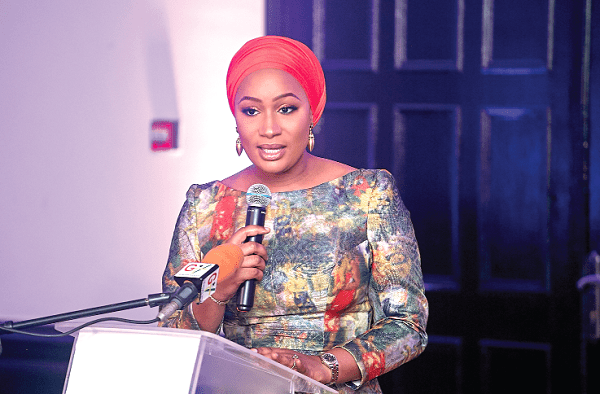
Support efforts to end sexual and gender-based violence - Samira Bawumia appeals to celebrities
The Second Lady, Mrs Samira Bawumia, has appealed to celebrities in the country to use their influence to back national efforts to galvanise urgent action to end sexual and gender-based violence against women and girls.
She said as role models in the media, music and film and other industries, they must also take a strong stand against injustices in society, especially against women and girls, and advocate a policy change.
That, she believed, would not only protect the well-being of women and girls but also help make homes a safer place for them.
“Your advocacy is very important; the more you talk about it, the more you bring these issues to the fore and the more people get to think about what they are doing and speak out because they see role models like you speaking about it,” she said.
Interaction
Interacting with celebrities at a dinner in Accra last Thursday, Mrs Bawumia said: “The more people are aware of how vast and prevalent sexual and gender-based violence is, the more they will be moved into action.”
The event was meant to sensitise and create awareness of the causes and consequences of sexual and gender-based violence and the harmful practices against women and girls (SGBVHPs) as well as galvanise support to stem the tide.
It was organised by the United Nations Population Fund (UNFPA) and the Coalition of People Against Sexual and Gender-based Violence and Harmful Practices (COPASH).
‘It affects us all’
Mrs Bawumia said the issue of sexual and gender-based violence and harmful practices such as domestic violence, defilement, incest, rape, female genital mutilation, child marriage and child trafficking affected everybody in society.
According to her, in Ghana, between 2000 and 2013, an estimated 177,840 cases of SGBVHPs were reported to the Domestic Violence and Victims Support Unit (DOVSSU) of the Ghana Police Service.
“This is only a reported number but we can imagine how many there are because some of the cases go unreported,” she said.
She added that there were so many instances where women or girls were victimised many times with no option to get out of such unfortunate situations or voice to speak, saying that, “unfortunately, these cycles of violence continue in silence.”
“In order to combat SGBVHPs, there must be more than changes in policies, a lot of education and change in behaviour,” she asserted.
Social media
The UNFPA Ambassador in Ghana, Ms Claudia Lumor, who is also the Founder of the Glitz Africa magazine, said with large following on social media, celebrities could disseminate information that could help end gender-based violence against women and girls.
“Women and girls tend to be the most vulnerable when these abuse occur and I am hoping that we will all come together to support this cause and use our platforms to end sexual and gender-based violence,” she said.
Leave no one behind
The Deputy Representative of the UNFPA, Ms Erika Goldson, said the impact of sexual and gender-based violence against women ranged from short and long-term multiple, physical, sexual and mental consequences for women and girls.
Such abuses, she said, generally affected the wellbeing of women and girls, preventing them from participating in society and taking proper care of their families and communities.
“If we are to eliminate all forms of violence against women and girls, and men, then we must ensure that no one is left behind,” she said.
